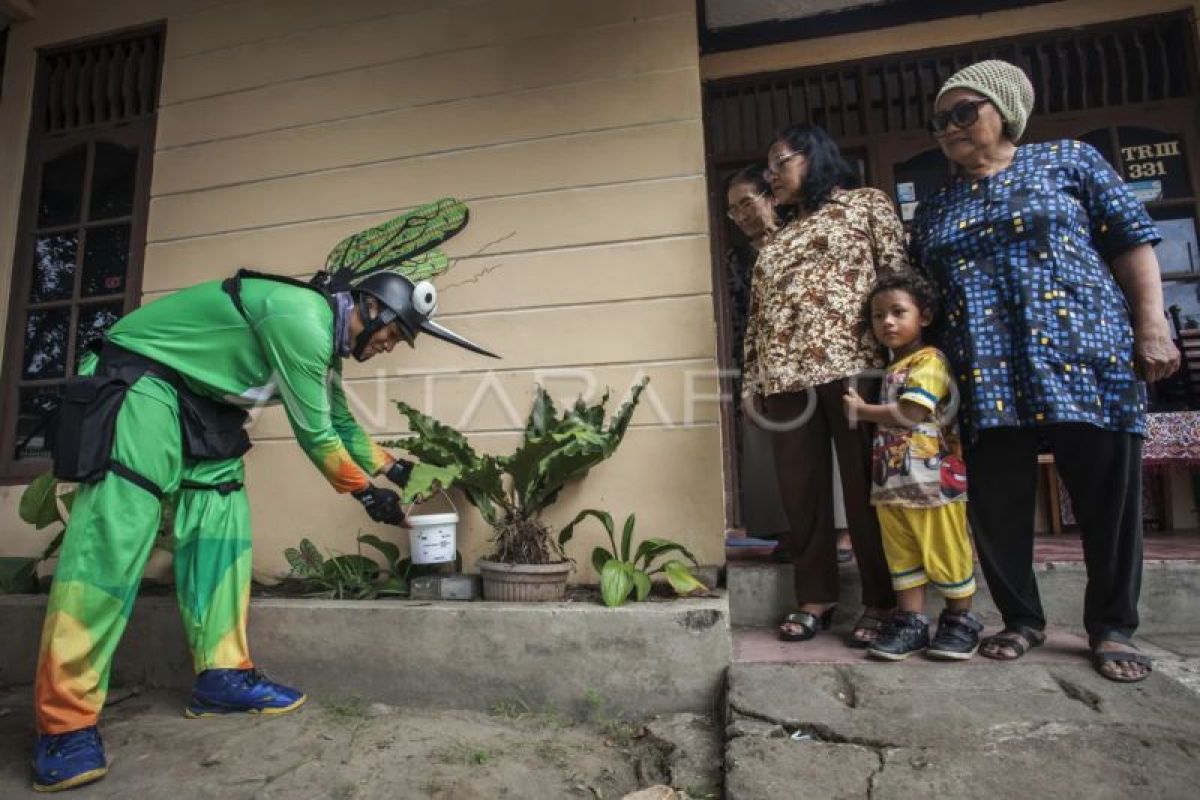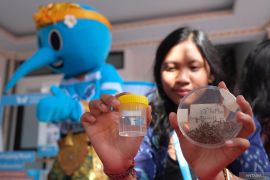"There is misinformation that Wolbachia-infected mosquitoes can enter human bodies and cause LGBT. Wolbachia only lives in insects; it cannot survive outside them," said Imran Pambudi, Director of Prevention and Control of Infectious Diseases, in a talk show at the ministry on Tuesday.
He also said that the Wolbachia method complements existing dengue control programs, such as eradicating mosquito nests.
The focus will primarily be on releasing Wolbachia mosquitoes in the six cities of West Jakarta, Bandung, Semarang, Bontang, Kupang, and Denpasar.
The release of Wolbachia mosquitoes into the environment can help reduce fogging by up to 83 percent, Pambudi stated.
"In 2023, there are regions that have budgeted for fogging 125 times, but it was only used nine times until November. With the release of Wolbachia-infected mosquitoes, the budget can be used for other needs," he elaborated.
In addition, a study was conducted on local communities where the Wolbachia-infected mosquitoes had been released, he remarked.
The results of the study, which was conducted by taking blood samples in Sleman, Bantul, and Yogyakarta City in Yogyakarta Province, were presented by Dr. Riris Andono Ahmad from Gadjah Mada University (UGM) of Yogyakarta.
Ahmad said that when a virus or a bacterium like Wolbachia enters a human body, the body automatically forms antibodies.
"Of the many blood samples we took, not a single one was found to have antibodies against Wolbachia in it," Ahmad explained.
Hence, he believes that it is more appropriate to release Wolbachia-infected mosquitoes in densely populated cities due to their flight range.
Based on the results of studies in British medical journals, the effectiveness of releasing Wolbachia-infected mosquitoes in a community can reduce cases of dengue hemorrhagic fever by 77 percent while lowering incidents of hospitalization due to the disease by 86 percent.
"Even in Niteroi, Brazil, they have succeeded in reducing chikungunya cases significantly by 56 percent and also reducing the risk due to the Zika virus by 37 percent," Ahmad remarked.
Related news: Wolbachia not make mosquitoes more biting: Health official
Related news: Yogyakarta dengue cases drop with Wolbachia-infected mosquitoes
Translator: Lintang Budiyanti P, Resinta Sulistiyandari
Editor: Anton Santoso
Copyright © ANTARA 2023












